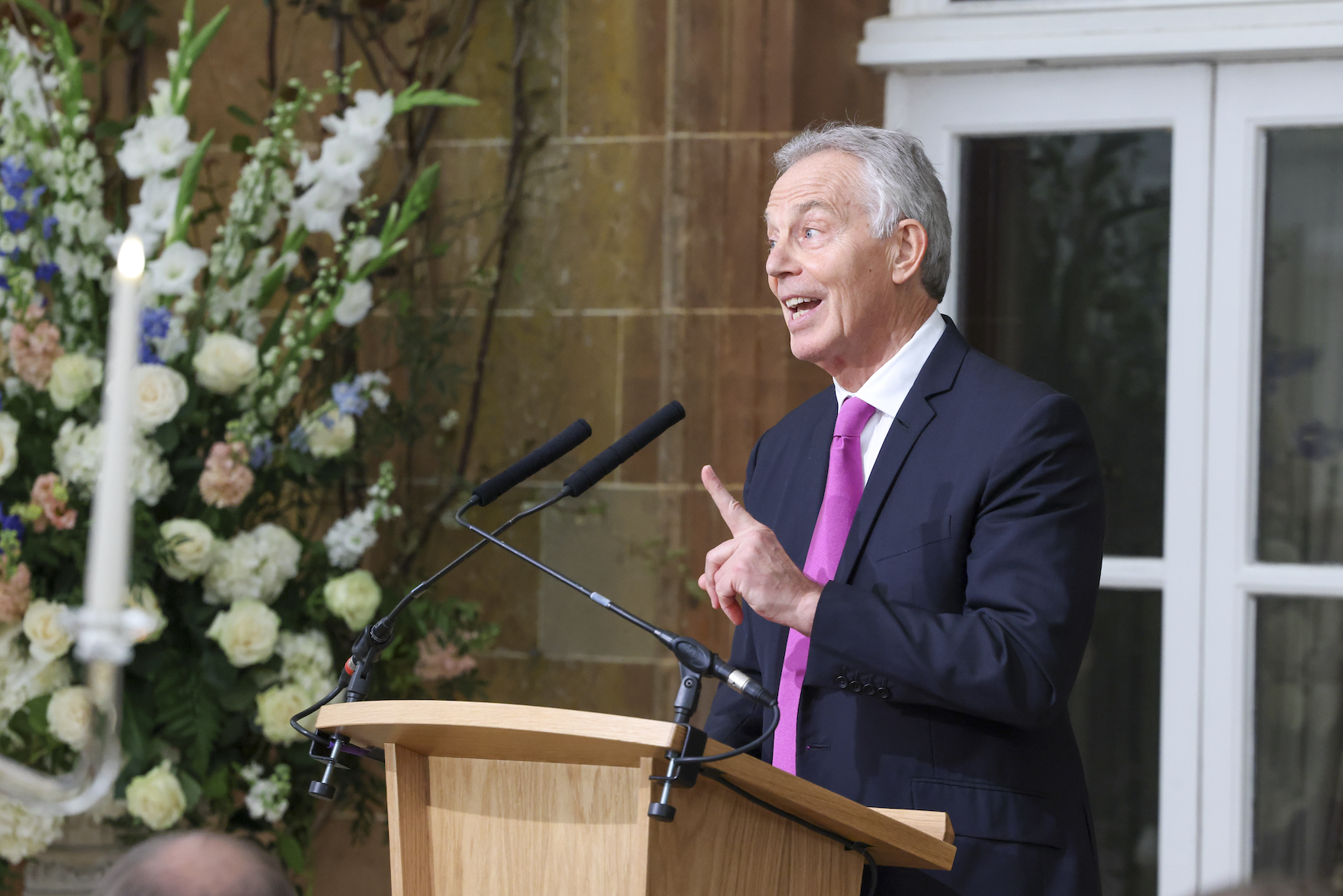Sir Tony Blair has a plan to fix the NHS.
On the service’s 75th anniversary, the prime minister from 1997 to 2007 argues for radical change to the health service of which he was once steward.
Warning the NHS will “continue down a path of decline” without radical reforms, Blair is today calling on the government to embrace a revolution in technology to reshape its relationship with patients and make much more use of private healthcare providers to cut waiting times.
The recommendations come in a report for the Tony Blair Institute for Global Change, of which Tony Blair is Executive Chairman, entitled “Fit for the Future: A Modern and Sustainable NHS Providing Accessible and Personalised Care for All”.


“The NHS now requires fundamental reform or, eventually, support for it will diminish. As in the 1990s, the NHS must either change or decline”, Blair writes in the report’s foreword.
The former PM goes on to back the private sector playing an expanded role, including in the provision of high-volume, low-complexity services, such as dermatology.
The six areas of reform Blair highlights are thus:
- Put patients in control of their own health
- Create new access routes for services and providers
- Harness the power of genomics and other “omics” platforms to personalise care:
- Create a locally led and self-improving system
- Invest in new and more efficient infrastructure to deliver better care
- Energise and modernise the NHS workforce:
What is clear, as Rishi Sunak and Sir Keir Starmer huddle in Westminster Abbey to read prayers and extol the NHS’ virtues, the former PM is engaged in an act of serious apostasy.
While claiming to “safeguard the founding principles of Beveridge and Bevan”, his proposal that private companies must be allowed to sell services through a bolstered NHS app will cause disconcertion across the political spectrum.
Arguably more controversial is his proposal that NHS patients should be allowed to pay to speed up access to healthcare. The Tony Blair Institute report calls for a new “partnership between the private health sector and the NHS” — including “co-payment options” which allow consumers to pay for speedier treatment.
Nor is Tony Blair the only major political player calling for radical reform of the NHS on its 75th birthday. Sajid Javid, health secretary from 2021 to 2022, yesterday warned that patients in Britain were left sicker as a result of the way the NHS is set up, Blair agrees today that “the NHS must either change or decline”. He says that the NHS “is falling further behind other health-care systems” and warns that more patients will go private if it does not change.
Javid called for a royal commission into the model of the NHS and has previously suggested patients should be charged to see a GP. He argued the NHS was “frozen in time” and an inquiry was needed to compare it with models used in comparable countries.
But Blair’s call for “brave political leadership” — supplemented by Javid’s pronouncements — has not, it seems, been answered. There has already been some significant pushback on Blair’s proposals from both the Labour and Conservative parties. Indeed, in a piece for the Times, health secretary Steve Barclay maintains that the Conservatives are “fully committed” to keeping the service free at the point of care.
Health secretary Steve Barclay has insisted the NHS can prosper without a dramatic overhaul, insisting it needs “constant evolution, not a big bang moment”.
Brushing off calls from Javid and Blair, he explains: “It is important the NHS changes and adapts in response to this, and improving technology and medical advancements, but this requires constant evolution — not a big bang moment.”
Barclay instead boasts the government’s workforce plan, which is backed by over £2.4 billion and sets out how the government seeks to address existing vacancies and recruit and retain hundreds of thousands more staff over the next 15 years.
Perhaps more pertinently, shadow health secretary Wes Streeting has said he “does not agree” with Blair’s suggestion that some people should be able to pay to use NHS services. The shadow health secretary said the UK “already has a two-tier system”, adding that “people who can afford it are paying to go private and those who can’t are being left behind”.
But “Change is never easy”, as Blair said in his institute’s report.

